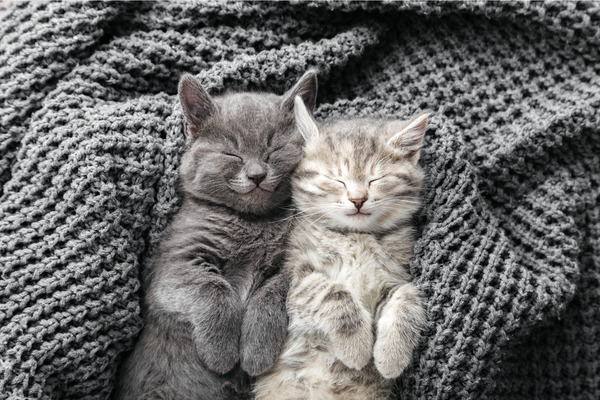Why do some people prefer to get up early and others to stay up until the wee hours of the morning? Discover why we have this tendency in our sleeping habits and how it determines our behavior.
There are two types of people in the world: those who hate getting up early and those who need to wake up very early to feel like they are taking advantage of their day. These types of habits or behaviors are related to our physiological functioning and how circadian rhythms affect us. In fact, this tendency is known as chronotype.
Our circadian rhythms are internal timekeepers that drive our physiological functioning throughout the day. That is, genetics have a lot of impact on their development. People Depending on these chronotypes, they will be more likely to wake up in the morning or later Depending on this, the energy peaks will be different, which will imply a completely different way of managing the routine. But what are the differences between a morning person and a night person? Does the chronotype determine some aspects of our personality or habits?
Why are you a night person or an early riser?
Chronotype is related to our perceived alertness. Therefore, this will determine the times to get up or go to bed as well as our energy peaks or performance throughout the day.
- On the one hand, the early risers, they tend to go to sleep early as they feel that their energy is depleted during the late afternoon hours. In addition, early risers also enjoy getting up early because their performance tends to be related to the first hours of the day. Another characteristic that differentiates them is that these people tend to wake up in a better mood, since their schedules are more linked to the routine that society tends to have.
- Instead, the nocturnal or night owls They tend to have a completely different schedule than morning people. This implies that unlike early risers, these people feel greater energy during the last hours of the night. Furthermore, its performance tends to be more related to nighttime hours. These people usually wake up later, so they find it difficult to adapt their schedules to the most common ones.
What are the main differences between early birds and night owls?
Some of the main differences between morning people and night owls are the following:
- Early risers tend to be more academically successful and night owls are more intelligent: Different studies show that although early risers tend to be more successful in the academic field, in reality the trend is for night owls to be more intelligent, especially in jobs that require mental speed and memory.
- Night owls are more unfaithful: Early risers tend to be more committed to romantic relationships, while night owls may be prone to infidelity.
- Night owls tend to smoke or drink more: According to different research, early risers are more likely to develop healthier habits. On the other hand, it was discovered that night owls were more linked to addictions such as smoking or drinking alcohol.
- Night owls procrastinate more: Studies have also linked procrastination to people who had a greater preference for staying awake late at night.
- Early risers are more positive: Due to the pace of life in society, some studies showed that early risers tended to have greater positivity. Even so, this effect may be due to the fact that the most common established schedules tend to adapt to the early riser chronotype.
- Night owls have more income: Other studies of people with different sleeping habits have found that night owls are more likely to earn more income from their work than early risers.
Know what our chronotype is and live in greater synchronization to our natural circadian rhythms of our body can help us feel better and, above all, take advantage of our skills and abilities. Therefore, whether you are a night owl or an early riser, the important thing is to know yourself and adapt to those schedules that make it easier for you to be more comfortable with your rest and energy levels.
As we see, our sleep schedules They involve more than our personal preferences. In fact, these preferences have roots in our biological predispositions. Additionally, it can be difficult to change these natural tendencies, although our chronotypes have some flexibility.









